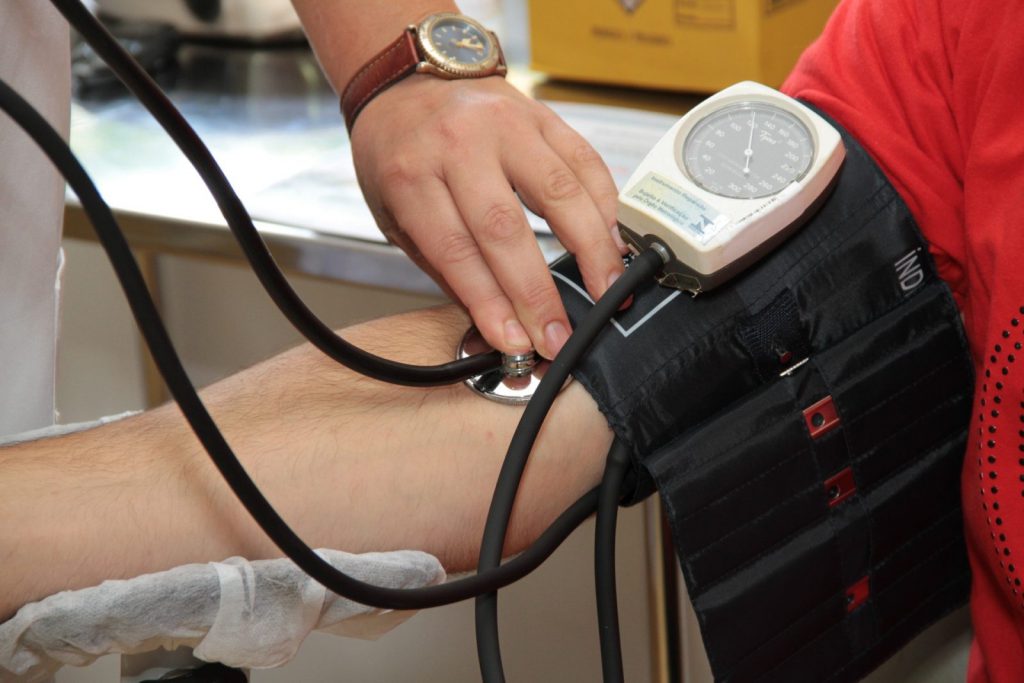
Published October 4, 2017
Editor’s Note: Pascal-Emmanuel Gobry is writing a series of columns on uncomfortable truths about health care in America. Some will make conservatives more uncomfortable, others will make progressives more uncomfortable, but most should make everyone uncomfortable.
Health care in the United States represents about $3.2 trillion spent every year, or close to a fifth of the national GDP. As an industry, it employs twelve and a half million Americans, or slightly less than 10 percent of all of employed Americans. In 2015, 83.6 percent of Americans had contact with a health-care professional, and Americans went on 884.7 million doctor visits.
Health care is not just these statistics; it is also an extremely emotional affair, as anyone who has struggled with a serious health issue or even just a health scare knows — anyone who has rushed a feverish child to the ER, cared for an elderly family member, worried about the impact of health care on their finances, or known someone who has a chronic disease. Health care can impact our finances, our quality of life, our dignity, and of course our very life itself. It has almost monopolized political debate at the federal level in the United States.
And health care doesn’t exist.
I am not, of course, saying that there is no such thing as doctors and nurses, hospitals and insurers, pills and scalpels and stethoscopes and acts of Congress. I am saying that there is no such thing as health care in the same sense that there is no such thing as religion: Precisely because there is so much of the thing, the word we use to describe it in general terms is meaningless for anything but that very general role.
This is anything but a semantic point. This is important not simply because it’s important to conceptualize things properly if one wants to think about them properly. It’s particularly important because “health care” covers so many different realities that trying to embrace them all at once — whether through acts of Congress or just discussion — is doomed at the start.
We rely on health-care experts, but it’s impossible for such a thing to exist, for the same reason that there is no “physics expert” — the body of knowledge is so vast and broad. Those who study physics must specialize in a particular branch, and however knowledgeable a physicist is in his particular branch, he may have little more than a high-school-level expertise on any other branch. There’s nothing wrong with that; we just have to be aware of it.
We talk about “the health-care system” as if there were such a thing, but there is not, except in the very broadest of strokes.
Again, this matters in the most concrete ways. For example, the debate around Obamacare and the various attempts to repeal and replace it have focused on health-care financing — already an incredibly complex subfield of health care — almost universally, as if “health care” were a monolithic thing that must be paid for. But consider that this covers preventative health care, routine health care, specialized care (gynecology, pediatrics, dentistry, optometry . . . ), psychiatric care, acute care, care for chronic and debilitating diseases, catastrophic care, and end-of-life care, to name just a few.
Now consider that, for each of these subsets of “health care,” the services provided differ, the goods involved (drugs, medical devices, for example) differ, and the costs differ, both in relative amounts and in how they must be spent, which means the options for financing differ, and the moral intuitions we have or share differ. For each of those things, there are lots of bad ideas for how to improve them or pay for them, and lots of good ideas. But it’s virtually impossible to discuss them, since they must be wrapped up under the heading “health care” and passing laws to improve them must only happen under the heading “health care reform.”
“Health care” covers the most low-tech things, such as basic in-person interactions, and also some of the most high-tech products and services that human minds have ever produced. Activities such as medical practice, hospitals, medical technology, drugs, and scientific research have completely different economic and physical constraints.
Perhaps, you might think, I am making too much of a semantic point. After all, all these specific subfields have their relevant experts, lobbying groups, and interests. Just because they happen to be put under the same convenient label doesn’t mean we just put everything under the same box. Hospital companies aren’t regulated just like drug companies.
I’m not saying that no one is aware of this. I’m saying that this common label causes us to miss things, to skip important debates, to shove too many things at the limited national attention span. Imagine that we as a society decided that agriculture, manufacturing, and retailing were all the “stuff industry.” There would be stuff-policy experts and schools of stuff policy, with people holding degrees and doctorates in it. Congress would have a Stuff Policy Committee, and we would have a Department of Stuff and we would be endlessly discussing stuff reform. (“Repeal and replace Obamastuff!”) In that world, we would still have plenty of people who understood that there are differences between agriculture and making cars. But that world would still be dumber in lots of ways.
Another way to understand this is to ask about any general statement about “health care.” How is “health-care quality” in the U.S.? Well, it depends. Even putting financing aside, it’s probably true that the best hospitals in the world are in the U.S. It’s also probably true that hospital visits in the U.S. are more dangerous than those in any other advanced countries, because of the overprescription of medical procedures and tests, all of which carries risks. So some American “health care quality” is excellent and some is less so.
Anybody who tries to talk to you about “health care” is using terminology that is too general to be of much help. That’s why I thought that this idea would be the best place to start a series of pieces about “health care.”
— Pascal-Emmanuel Gobry is a fellow at the Ethics and Public Policy Center.



